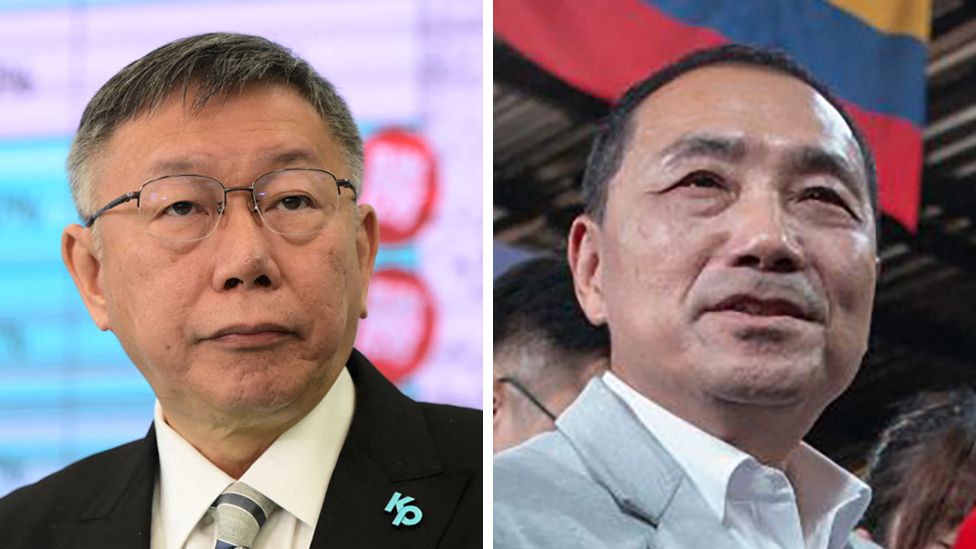-

-
-
Loading

Loading

Taiwan's two main opposition parties were close to announcing a joint presidential bid, but the deal fell through due to disagreements between the parties. The potential alliance would have posed a significant challenge to the ruling party, which is leading in the polls. However, tensions between the nationalist Kuomintang party (KMT) and the newer Taiwan People's Party (TPP) prevented the partnership from materializing. Both parties advocate for better relations with Beijing and a reduced risk of war, setting them apart from the ruling Democratic Progressive Party (DPP), which has leaned towards the US and emphasized Taiwan's independence. Despite their shared goals, the KMT and TPP have significant ideological differences. The KMT, which previously ruled Taiwan, believes it should regain power, but faces competition from Ko Wen-je, the TPP's candidate, who has gained popularity, especially among young voters, by advocating for affordable housing. However, critics view Ko as an opportunistic populist with inconsistent policies. Ko's political career has seen him support multiple parties, including the DPP, with which he no longer aligns. The KMT's candidate, Hou Yu-ih, has struggled to gain traction, leading the party to consider an alliance with Ko, despite his previous criticisms of the KMT. However, the partnership fell apart due to disagreements over polling data. This development leaves the opposition fragmented, with various candidates, including billionaire businessman Terry Gou, vying to unseat the DPP. The DPP has countered by announcing Bi-Khim Hsiao, Taiwan's representative to the United States, as its vice-presidential candidate, hoping to appeal to young voters. The upcoming presidential election in January will determine the country's future leadership.